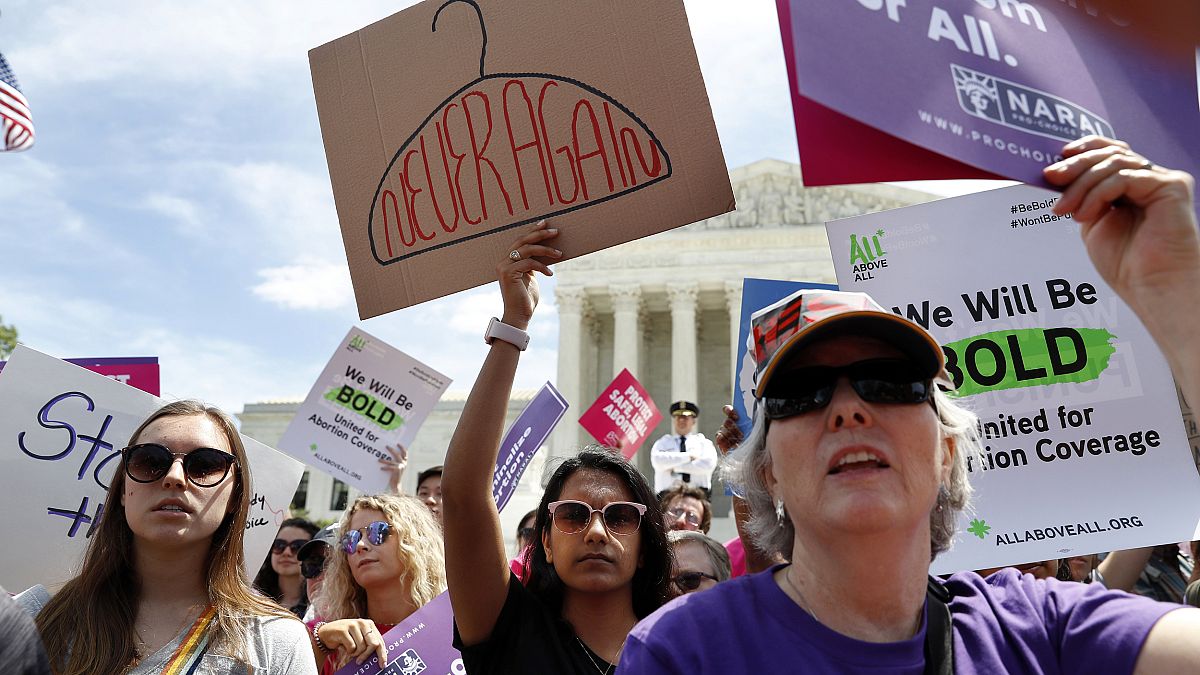The justices left lower court rulings intact that invalidated a broader measure that would prevent a woman from having an abortion based on gender, race or disability.
WASHINGTON — The Supreme Court on Tuesday upheld Indiana's law requiring abortion providers to bury or cremate fetal remains, but left lower court rulings intact that invalidated a broader measure that would prevent a woman from having an abortion based on gender, race or disability.
Passed in 2016 and signed by then-Gov. Mike Pence, the law prohibited what the state called discriminatory abortions — those sought because of characteristics of the fetus, including gender, race, or diagnosis of Down syndrome or other defect. Supporters of the measure said the law responded to medical developments that allow women to choose which child to bear, an option the state said was not contemplated at the time of the Roe decision.
Curtis Hill Jr., Indiana's attorney general, said the state legislature passed the law in response to "the alarming trend of disability-selective abortions" and with the goal of "protecting children with Down syndrome and other disfavored characteristics from invidious discrimination."
Planned Parenthood challenged the law as an unconstitutional restriction on abortion rights, and lower courts agreed, preventing the law from taking effect. The Supreme Court left those rulings in place that invalided that part of the law.
The court's brief order Monday said it "expresses no view on the merits" of that issue. But because only one federal appeals court has ruled on the question, "we follow our ordinary practice of denying petitions insofar as they raise legal issues that have not been considered by additional Courts of Appeals."
But the Supreme Court allowed the state to enforce another provision of the law that requires fetal remains to be disposed of by burial or cremation rather than as medical waste. A total of 18 states had urged the Supreme Court to hear Indiana's appeal.
As is the court's usual practice, it gave no reason for declining to hear the case.
